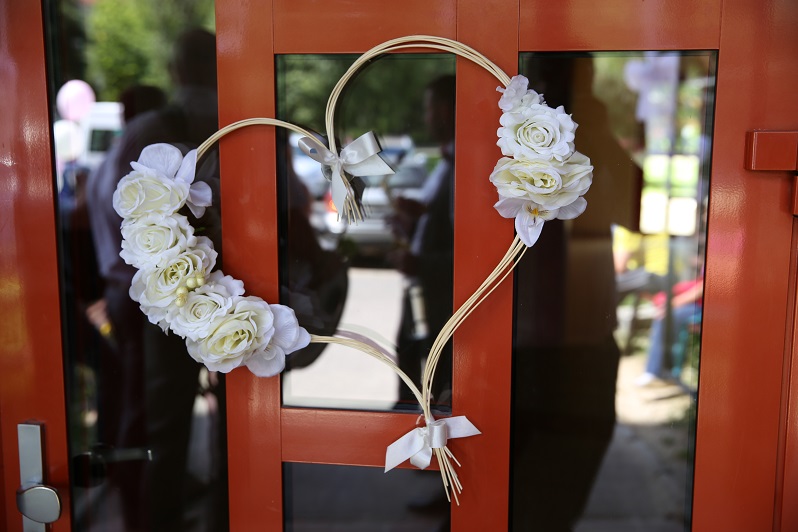It is a joyful experience getting married in the UAE, but it requires careful planning and preparation when it comes to the paperwork. Whether you are a resident of the UAE or just a visitor in the UAE, knowing the essential documents for marriage is very important.
In this article, we shall cover the Paperwork for Marriage in UAE and explain 8 types of Must have Documents.
Significance of Paperwork for Marriage in the UAE
Marriage is a legal contract in the UAE. Proper paperwork is essential to ensure the validity of the marriage and recognition by UAE courts. Each emirate (Dubai, Abu Dhabi, Sharjah, etc.) may have variations in procedures, but the basic documents largely remain the same.
Proper documentation is crucial for marriage as well as for obtaining visas, family sponsorships, and legal protection for the spouses and children.
important Court Marriage required Documents you will need.
Valid Passports and Emirates ID
A valid copy of the passport needs to be submitted by both parties. If the couple is UAE residents, then a copy of the Emirates ID is also needed. These documents confirm your identity and legal status in the UAE.
Tip: Always check that your passport is not expired when submitting it as part of the marriage formalities.
Residency Visa or Entry Permit
If you are a resident, a copy of your UAE residency visa is required. Tourists and visitors must provide a valid entry permit.
UAE Marriage Laws require that in some emirates both parties must hold valid UAE visas; however, Abu Dhabi allows marriage between visitors and residents under certain conditions.
Birth Certificates
Providing a birth certificate (translated into Arabic and attested if not originally in Arabic) will help prove the age and identity of the parties who want to get married.
This is important in order to prove that both individuals are of the age of 18 years and above as the legal age for marriage in the UAE is 18 years.
Certificate of No Objection (No-Objection Certificate – NOC)
A No-Objection Certificate (NOC) is sometimes required especially for expatriates. This document is obtained from your embassy or consulate that states there is no objection to your marriage.
Note: UAE citizens who are marrying non-UAE nationals may also need special permission from the UAE authorities.
Pre-Marital Medical Screening Certificate
In the UAE, premarital examination is a requirement for Emirati and resident couples to get married. The aim of the screening is to safeguard their health by ensuring that no potential infections will be transmitted between them. The screening includes tests for infectious diseases and genetic diseases.
Important: Private medical tests are not accepted; only government-approved test results are valid. Further, applicants for a civil marriage are not required to have a premarital screening certificate.
Divorce or Death Certificate (If Applicable)
If one of the parties was married before, a certified copy of the divorce certificate or death certificate of the former spouse must be provided.
These certificates must be translated into Arabic and legalized so that they can be accepted by the UAE courts.
Marriage Contract (for Muslim Couples)
For Muslim couples, the marriage has to comply with Sharia Law requirements. A Marriage Contract that is written by a licensed Islamic marriage officer (Mazoon) is required.
The rights and duties of both parties are specified in the contract which has to be signed by the Mazoon and witnesses in his presence.
Parental or Guardian’s Approval (for Women Under 18)
If the Muslim bride is below 18 years of age, UAE law requires that she has the consent of her guardian in writing. No marriage can take place in the UAE under the UAE marriage regulations without the guardian consent.
Note: Some marriage requirements have been announced by the introduction of Federal Decree Law no. 41 of 2024 on the Issuance of the Personal Status Law. Now, the guardian’s approval for non-citizen Muslim wife is not required. It depends on the condition that the law of her nationality does not require her to have a guardian in marriage.
Additional Important Points to Remember
- Attestation of Foreign Documents: All foreign documents (birth certificates, divorce decrees, etc.) must be attested by the issuing country’s UAE Embassy and the UAE Ministry of Foreign Affairs.
- Marriage of Non-Muslims: Non-Muslim residents can marry in accordance with their local laws either through their embassies or before specialized non-religious civil marriage courts (e.g. in Abu Dhabi).
- Marriage by Court: Civil marriage under the personal status law of the UAE for the non-Muslim couple is allowed, particularly in Abu Dhabi. The paperwork will have some variations.
Why Proper Paperwork Matters
Having incorrect or missing papers delays the marriage process and sometimes can even invalidate the marriage contract. Thus, it is highly recommended to prepare the necessity papers in advance and seek professional help if needed.
Seeking legal help and advice ensures that the whole procedure of marriage is within the laws in UAE making the marriage legally binding both nationally and internationally.
How Marriage Lawyers in UAE Can Help You?
All the documentation associated with marriage in the UAE can be too much to handle. The marriage lawyers in the UAE can help in the following matters:
- Verification of documents to meet UAE legal requirements
- Assist in translation and attestation
- Guide through the marriage registration process
- Represent you in courts of the UAE, if necessary
- Help ensure that your marriage contract is valid
To enjoy a hassle-free and smooth marriage process in the UAE, qualified marriage lawyers are here to guide you at every step.
Get in touch with Dubai Court Marriage competent marriage lawyers to make your marriage journey smooth, swift, and in accordance with UAE law.

